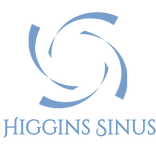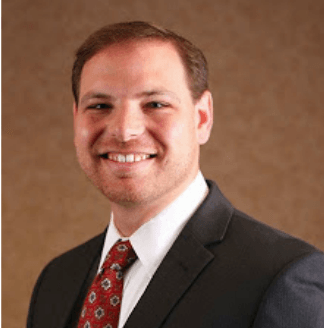Sinus Surgery
Functional endoscopic sinus surgery (FESS) is a minimally invasive procedure that opens clogged sinus cavities and improves mucus flow.
What is Sinus Surgery?
Sinus surgery is a minimally invasive procedure that improves the function of the paranasal sinuses, reduces sinus infections, and improves the symptoms from chronic sinusitis. Modern techniques are called functional endoscopic sinus surgery (FESS) as they aim to restore the natural clearance of mucus from the sinus cavities. While techniques in the 1970s and 1980s were painful and high risk, sinus surgery today has become a much safer outpatient operation and often remarkably little pain.
When is sinus surgery necessary?
Sinus surgery is necessary for those who suffer from chronic sinusitis or recurrent sinus infections when medications are not enough to fix the issues. This is a form of nasal surgery in which the sinus cavities are enlarged and cleaned out to correct the underlying problem.
Here are some of the common reasons why sinus surgery is recommended:
- To remove a blockage in a sinus cavity to allow it to drain freely. If the sinus is blocked, an infection can get into the sinus and cause a sinus infection.
- To relieve congestion from swelling in the sinus cavities. If you have sinus pressure, one of the causes is inflammation of the sinuses.
- To remove a tumor in a sinus cavity.
What are the types of sinus surgery?
The types of sinus surgery include functional endoscopic sinus surgery, image-guidance sinus surgery, balloon sinuplasty, expanded endoscopic sinus surgeries, and open sinus surgery.
Functional Endoscopic Sinus Surgery
In functional endoscopic sinus surgery, a tiny camera is placed in the nose and micro tools are used to remove, or excise, the blockage. The surgeon may work on one or more of 8 paranasal sinuses. A maxillary antrostomy is opening the maxillary sinus (or cheek sinus). An ethmoidectomy is performed by removing the ethmoid sinus cells from ethmoid sinusitis and sinus nasal polyps. In a sphenoidotomy, the surgeon opens the hole that connects the nose to the sphenoid sinuses. Finally, a frontal sinusotomy is the opening of the frontal outflow tract, the hourglass tunnel connecting the nose to the frontal sinus.
Image-Guided Sinus Surgery (or Navigated Sinus Surgery)
In image-guided sinus surgery (or navigated sinus surgery), the surgeon uses a special "heads-up display" to help guide the surgeon's tools. In some cases, innovative techniques, such as planning tools, virtual cameras, anatomic mapping, and artificial intelligence, are used to improve safety and outcomes.
Balloon Sinuplasty
Balloon sinuplasty is a procedure to dilate the sinus cavities without any cutting. It is can be performed in the office with no or minimal sedation. A tiny camera and a specialized sinus balloon catheter is guided into the sinus openings through your nostrils. The balloon is inflated, opening up pathways for drainage. Then, the balloon is deflated and withdrawn. The procedure can be performed in approximately 30 minutes. You will be able to return to your usual activities right away.
Endoscopic Medial Maxillectomy
Endoscopic medial maxillectomy is an advanced sinus surgery technique for refractory maxillary sinusitis. In this procedure, the wall of the cheek sinus is removed down to the floor of the nose. This allows the surgeon to access the bottom of the sinus cavity to remove sinus pus, polyps, cysts, or tumors. The main advantage of endoscopic medial maxillectomy is that it offers a full view of the sinus, making it easier to remove the full extent of the infection or polyp. This makes it more likely to remove all traces of disease, whether that is an infection, polyp, or cancerous cells in the sinus. Endoscopic medial maxillectomy has replaced many of the indications for which a Caldwell-Luc procedure, an open sinus surgery that accesses the maxillary sinus through an incision underneath the upper lip.
Frontal Sinus Surgery
Frontal sinus surgery is an advanced sinus surgery that requires the delicate removal of tissue between the forehead, eyes, and skull base. Because of the narrow tract leading up to the frontal sinus, the sinus is prone to scarring and closure after surgery. This can lead to a recurrence of sinus problems. Expanded endoscopic frontal sinus surgeries may be required to treat conditions such as extensive nasal polyps, mucoceles, osteomas, and tumors of the frontal sinus. Occasionally, a Draf 3 frontal sinus surgery is needed in which the two frontal sinuses are connected to each other using a tiny specialized angled surgical drill.
What are the benefits of sinus surgery?
If you experience chronic sinus pressure, congestion, or other symptoms, you may be a candidate for sinus surgery. Sinus surgery greatly relieves the symptoms of chronic sinusitis and has been shown to reduce or eliminate future sinus infections. It may also be used to improve nasal breathing, relieve smell loss, and reduce headaches caused by sinus congestion.

What are the risks of sinus surgery?
Any surgery has risks and making sure the benefits outweigh the risks is important discussion to have with your surgeon.
Some of the potential risks of sinus surgery include:
- Nosebleeds
- Risks of anesthesia
- Infection
- Scarring
- Loss of smell
- Loss of taste
- Injury to eyes or vision loss
- Brain fluid leak
All surgeries have risks, but it is possible to minimize the risks by taking certain precautions and make sure that you are under the care of a qualified and experienced surgeon.
Need Help with Sinusitis?
Frequently Asked Questions





